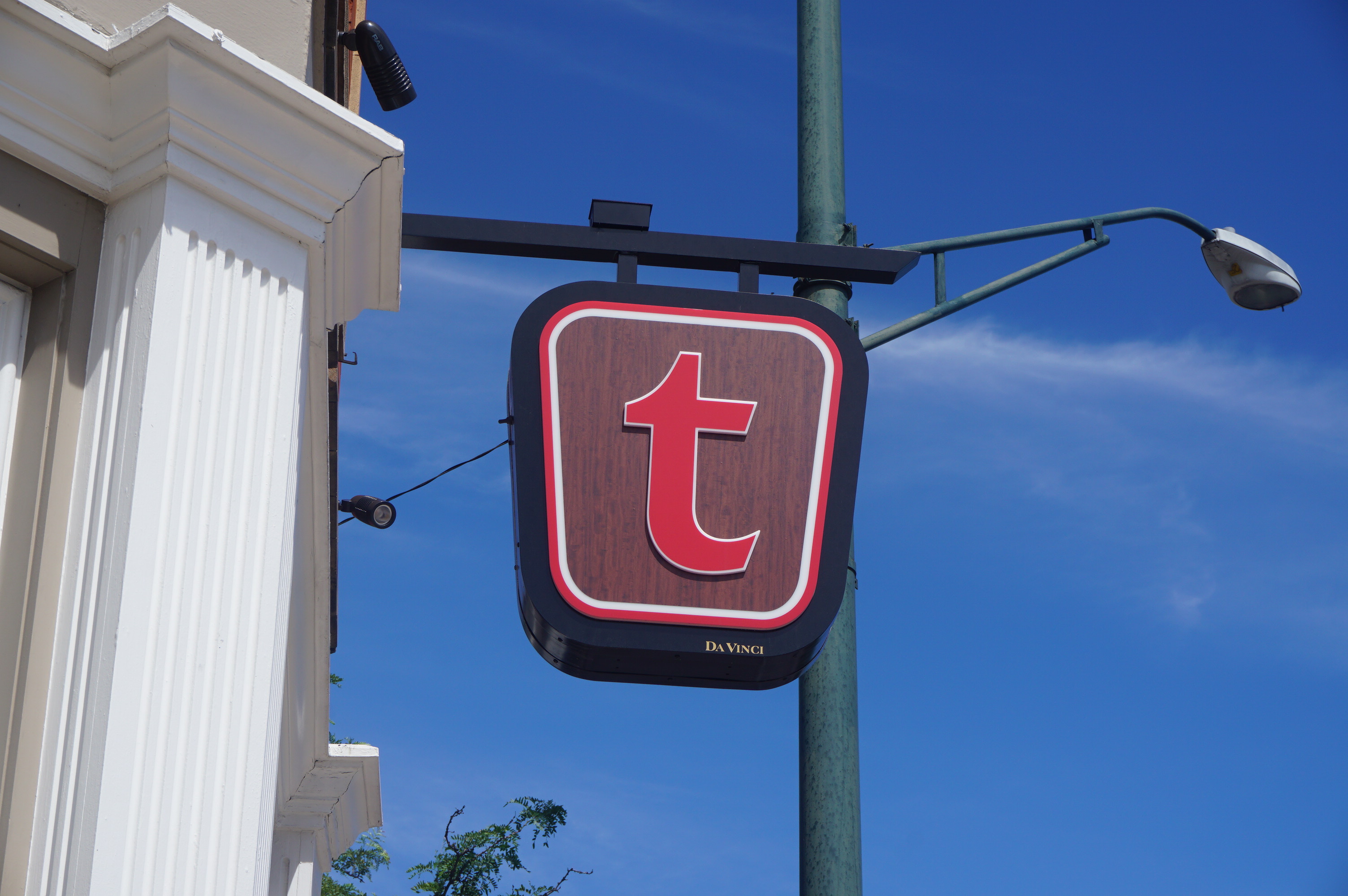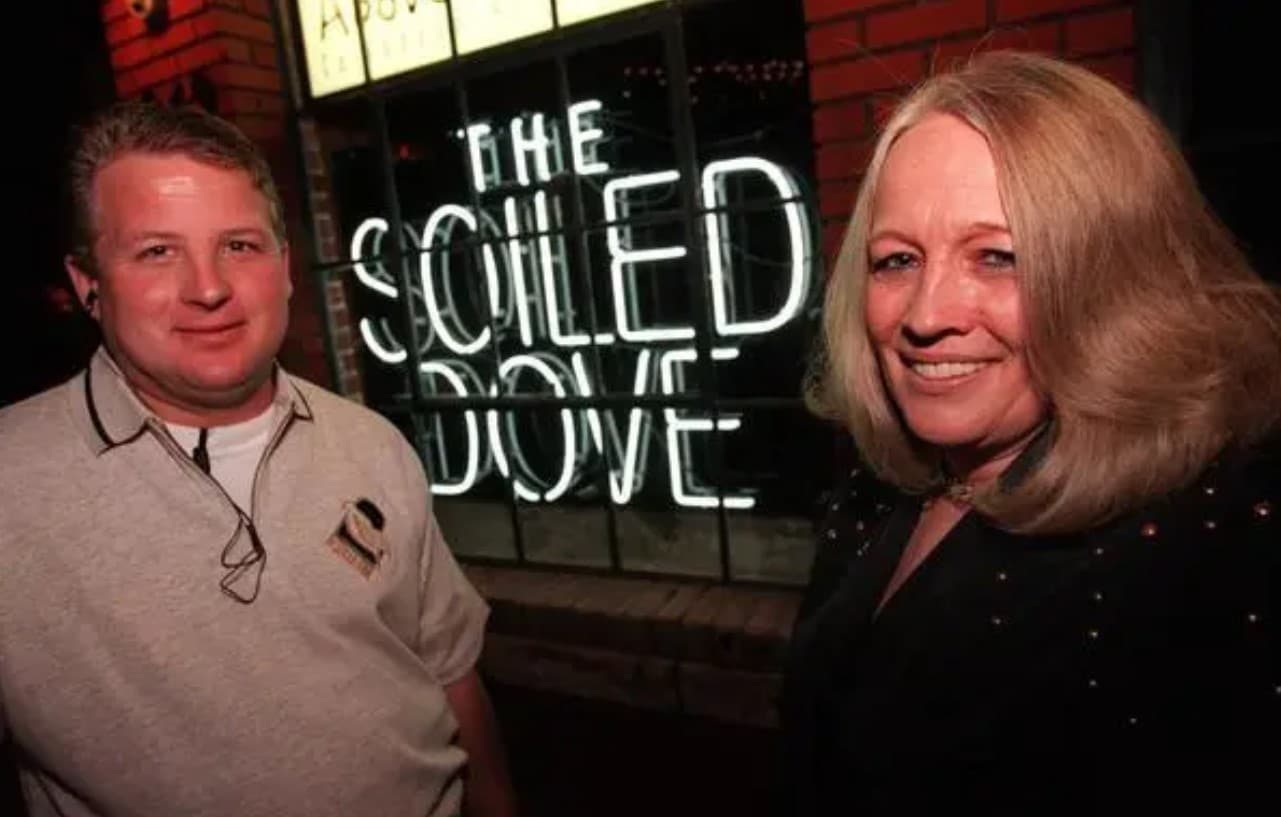
Two Tavern-branded restaurants still operate, in Littleton and Lowry. Others in the metro area have closed in recent years. (BusinessDen file)
Denver restauranteur Frank Schultz testified emotionally Thursday that his mother, who is also his business partner, has purloined hundreds of thousands of dollars from their bars and restaurants, seriously jeopardizing the financial future of once-thriving companies.
“My mom and I started this in 1997 and we always had our differences, but we each had a role to play and we fed off each other,” Schultz said of the Tavern Hospitality Group’s origins as he pushed back tears on the witness stand. “I think we were a pretty good team.”
Schultz said that he managed Tavern’s real estate and day-to-day operations while Terry Papay ran the companies’ finances. The arrangement worked well until the pandemic.
“It really got tense when – COVID, that didn’t help much — but I started getting a lot of calls from vendors, asking about getting paid. Liquor vendors, food vendors and whatnot. I would be told that — I’m sorry, mom — ‘That lady’s not nice to me and I need to talk to you.’ “
“I’m not trying to villainize my mom but this was her world. The finances were her world.”
Schultz was sued by Papay last March. She accused her son of taking hundreds of thousands of dollars from company bank accounts, cutting her out of real estate deals and failing to repay $3.7 million in promissory notes. Schultz countersued Papay the next month.
Thursday’s hearing was about whether Judge Andrew Luxen should grant Schultz’s request to prohibit Papay from accessing the Tavern companies’ bank accounts, from talking with vendors and employees, and from otherwise having a major role in their companies.
“This means that you would get to do whatever you want to do whenever you want to do it, with respect to the companies?” Papay attorney Leah Capritta asked Schultz.
“Yes, that’s what it means,” he said.
Luxen denied the motion late Thursday afternoon, ruling that Schultz did not show the need for such an “extraordinary remedy.” A two-week trial is scheduled to begin July 8.
Tavern restaurants operate in Littleton and Lowry, but locations in Uptown and the Denver Tech Center are now closed. Tavern Wash Park closed in 2018. Tavern Downtown and Cowboy Lounge, which Schultz also owned, closed in the fall of 2019, months after Schultz sold the real estate for $17.75 million. Tavern Platt Park closed at the end of 2019.
Tavern Hospitality also operates non-Tavern-branded restaurants, including Whiskey Tango Foxtrot in Union Station North and Otra Vez Cantina on the 16th Street Mall.
“The companies are struggling,” Schultz testified Thursday. “They’re not doing well.”
“Are they losing money?” his attorney, Chad Williams, asked the CEO.
“They are losing a lot of money,” Schultz said of the Littleton and Lowry locations.
The Tavern Littleton building at 2589 Main St., which the restaurant group owns, hit the market for $3.9 million this week. Records indicate the company also owns its real estate at Tavern Lowry; that property doesn’t appear to be currently marketed for sale.
Schultz testified that the Tavern companies struggled to make payroll in March 2023 and several times since. He said that some property taxes haven’t been paid and that three Tavern properties are being foreclosed on, but didn’t name those locations.
On cross-examination, Capritta walked Schultz through a list of his own personal expenses that have been paid out of Tavern bank accounts — including $115,000 for his son’s private schooling, $92,000 for Schultz’s medical care and $29,000 for his personal vehicle — to make the case that both owners of Tavern use company cash for personal expenses.

A younger Frank Schultz, left, and Terry Papay at the Soiled Dove, their first venue. (Denver Post file)
In his defense, Schultz said that Papay, as chief financial officer for Tavern, approved all of those transactions. And Schultz testified that he has stopped receiving payments from the company since the lawsuit was filed but his mother hasn’t. Papay has paid off $400,000 in credit card expenses since suing her son last spring, according to Schultz’s testimony.
Schultz said that after vendors called him to say they weren’t being paid, he looked at Tavern’s books for the first time and found his mother paying personal expenses, including mortgages and football tickets, with Tavern money. He said it was “really difficult and disappointing” to see those bank statements from 2019 to 2023 — years when the companies struggled.
“To be honest,” Schultz said, “I’m afraid to look at the years that were very prosperous.”
Schultz testified for four hours. Papay, testifying after him, said that she could not recall Schultz ever caring about the finances of Tavern Hospitality before she sued him.
“Mr. Schultz hasn’t worked for the company for several years,” Papay alleged.
“To your knowledge, what does Mr. Schultz do?” Capritta, her attorney, asked.
“He plays golf, he travels. Maybe recently he’s been spending time at the office, but other than that he travels and plays golf,” Papay said of her son.
When asked how Tavern has been doing recently, Papay said, “It’s been pretty bad.”
BusinessDen reporter Maia Luem contributed to this report.

